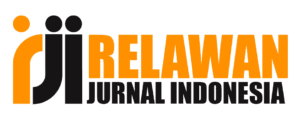The Constraining Dynamics to Promote the Inclusive Village Governance in an Autocratic Leadership Setting
Abstract
This article discusses the implementation dynamics of the Village Law in a certain context which was backgrounded by the village head's autocratic leadership style that tends to hinder the agenda for institutionalising inclusive governance based on social justice in the village development management. Accountability and citizen engagement as the foundation of term inclusive governance are the principal factors that must be implemented by the Village Government in their routine tasks. As qualitative research with a case study approach, this research utilized a purposive sampling technique to determine the key informants targeted from the elements of the government and villagers. To limit the focus of interest, this research only presents a discussion about the implementation dynamics of the Village Law with the setting of the leadership style of the Village Head in the 2011-2017 period. Field findings show that Dorokobo Village, Kempo District, Dompu Regency has complex socio-economic problems, thus requiring the presence of a responsive government and active villagers to jointly manage various development activities. Unfortunately, expectations of ideal leadership are not widely found in the past structure of the Village Government because they were only busy with various administrative activities and absent from substantive matters. Political leaders came with a procedural and even autocratic style so that the regular participation spaces were limited opened by only involving the elite without the presence of all components of the community. The absence of a progressive process to develop institutional accountability was due to the lack of power that can compel the Village Government to apply the principles of accountability and transparency in their activities.
References
Agarwal, R. (2008). Teaching for social justice: an ambiguous and uncertain endeavour. Dissertation. Columbia: Columbia University.
Aryee, S., Chen, Z. X., Sun, L.Y. & Debrah, Y. A. (2007). Antecedents and outcomes of abusive supervision: Test of a trickle-down model. Journal of Applied Psychology, 92, 191-201. doi:10.1037/0021-9010.92.1.191
Bass, B. M. (2008). Bass and Stogdill’s handbook of leadership: theory, research and managerial applications (4th Ed.). New York, NY: Free Press.
Bee, C. (2017). Active citizenship in Europe: practices and demands in the EU, Italy, Turkey and the UK. London: Palgrave Macmillan.
Brooker, P. (2010). Leadership in democracy. 2nd Edition. New York: Palgrave Macmillan.
Carothers, T. & Brechenmacher, S. (2014). Closing space: democracy and human rights support under fire. Carnegie Endowment for International Peace, Washington, DC. Retrieved from https://carnegieendowment.org/files/closing_space.pdf.
Cole, N. D. (2004). Gender differences in perceived disciplinary fairness. Gender, Work & Organization, 11, 254-277. doi:10.1111/j.1468-0432.2004.00231.x
Cornwall, A. (2004a). New democratic spaces? the politics and dynamics of institutionalised participation. IDS Bulletin, 2, 1-10.
Creswell, J. W. (2007). Qualitative inquiry and research design: choosing among five approaches. Second Edition. Thousand Oaks, CA: Sage Publications.
Eagly, A. H., & Johnson, B. T. (1990). Gender and leadership style: a meta-analysis. Psychological Bulletin, 108, 233-256. doi:10.1037/0033-2909.108.2.233
Farh, J. L., & Cheng, B. S. (2000). A cultural analysis of paternalistic leadership in Chinese organizations. In J. T. Li, A. S. Tsui, & E. Weldon (Eds.), Management and organizations in the Chinese context (pp. 94-129). London, England: MacMillan.
Flinders, M. & Buller, J. (2005). Depoliticisation, democracy, and arena-shifting. Paper. Stanford: Stanford University.
Gaventa, J. & Barrett, G. (2010). So what difference does it make? mapping the outcomes of citizen engagement. IDS Working Paper, No. 347, Institute of Development Studies at the University of Sussex, Brighton. Retrieved from https://onlinelibrary.wiley.com/doi/pdf/10.1111/j.2040-0209.2010.00347_2.x
Grindle, M. (2010). Good governance: the inflation of an idea. Retrieved from https://dash.harvard.edu/handle/1/4448993.
Harms, P. D., Wood, D., Landay, K., Lester, P. B., & Lester, G. V. (2018). Autocratic leaders and authoritarian followers revisited: a review and agenda for the future. The Leadership Quarterly, 29(1), 105-122. https://doi-org.ezproxy.ugm.ac.id/10.1016/j.leaqua.2017.12.007
Hendrix, W. H., & McNichols, C. W. (1982). Organizational effectiveness is a function of managerial style, situational environment, and effectiveness criterion. Journal of Experimental Education, 52, 145-151.
Hickey, S. (2015). Inclusive institutions. GSDRC Professional Development Reading Pack, No. 29, University of Birmingham, Birmingham, UK. Retrieved from https://gsdrc.org/wp-content/uploads/2015/12/Inclusive-Institutions_RP.pdf.
Hidayat, R., Hendra, & Iptidaiyah, M. (2019). The steep road to institutionalizing negotiable governance in the management of village development. Journal of Governance: Jurnal Ilmu Pemerintahan Universitas Sultan Ageng Tirtayasa, 4(1), 45-67.
Joshi, B. S. (2019). Leadership style paradigm shift in hospital industry: need of the day, in comparison with the hospitality industry. Journal of Health Management, 21(1), 141-153. doi: 10.1177/0972063418822195
Law No. 6/2014 on Village (UU Desa).
Likert, R. (1961). New patterns of management. New York, NY: McGraw-Hill.
Mariana, D. et al. (2017). Desa: situs baru demokrasi lokal. Yogyakarta: IRE.
Mitlin, D. (2004). Reshaping local democracy: Editorial. Environment & Urbanization, 16(1), 3-8.
Mullins, L. J. (1999). Management and organizational behaviour. London, England: Financial Times.
OECD. (2020). What does “inclusive governance” mean? clarifying theory and practice. OECD Development Policy Papers, March 2020, No. 27.
Permendesa PDTT Republik Indonesia Nomor 1 Tahun 2015 tentang Pedoman kewenangan berdasarkan hak asal-usul dan kewenangan lokal berskala desa.
Pettit, P. (2004). Depoliticizing democracy. Ratio Juris, 17(1), 52-65.
Priyono, A. E. (2017). Demokratisasi desa: situs baru politik partisipatoris? In Mariana, D. et al., Desa: situs baru demokrasi lokal (pp. 1-11). Yogyakarta: IRE.
Reason, D., & Davis, T. (2005). Antecedents, precursors, and concurrent concepts in the development of social justice attitudes and actions. New Directions for Student Services, 110, 5-15.
Rocha Menocal, A. (2012). Analysing the relationship between democracy and development. Commonwealth Governance for Development, Cambridge, UK. Retrieved from http://www.commonwealthgovernance.org/assets/uploads/2014/04/GG11-Analysing-the relationship-between-democracy-and-development.pdf.
Shaw, M. E. (1955). A comparison of two types of leadership in various communication networks. Sociometry, 37, 38-53.
Thompson, L., & Tapscott, C. (2010). Citizenship and social movements: perspectives from the global south. London & New York: Zed Books.
Tornquist, O. (2009). Introduction: the problem is representation! towards an analytical framework. In O. Tornquist, N. Webster, & K. Stokke (Eds.), Rethinking popular representation (pp. 1-23). Houndmills: Palgrave Macmillan.
Weil, M. (2004). Introduction: contexts and challenges for 21st-century communities. In M. Weil (Ed.), Handbook of community practice (30-33). Thousand Oaks, CA: Sage Publications.
Wells, T. (2019) Narrative and elucidating the concept of democracy: the case of Myanmar's activists and democratic leaders. Democratization, 26(2), 190-207, doi: 10.1080/13510347.2018.1509850
Copyright (c) 2022 Journal of Governance and Local Politics (JGLP)

This work is licensed under a Creative Commons Attribution-NonCommercial-NoDerivatives 4.0 International License.










